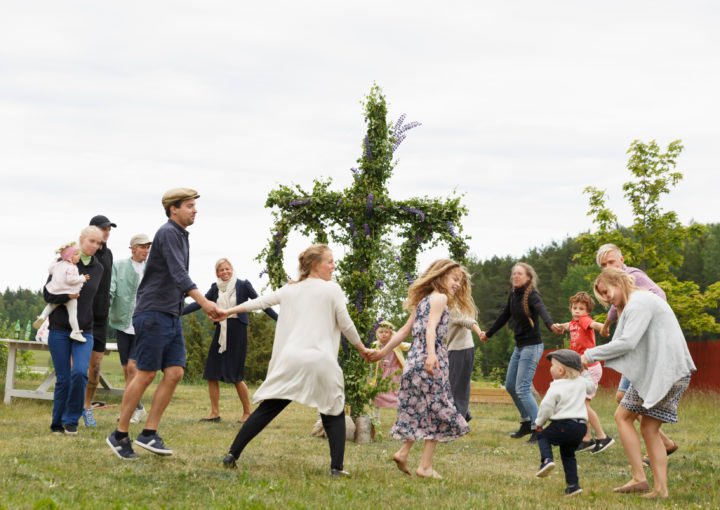More freedom (and free time) = more happiness
“Now I am going to get myself happy… Freedoooom!”. This what late George Michael sang in the 90s. And it can’t be more relevant today as well. We all search for ways to be happy. And research (even science) tries to identify the factors of happiness. A tough task indeed. What we cannot ignore however is that there is one little word that determines our happiness, to a great extent. Freedom.
Freedom of the press, faith, movement, expression, assembly and so many more. When we feel free to live our lives as we want, this can be the greatest gift of all. We feel you nod right now. There is however one resource that is so scarce and running out relentlessly, that we need to focus our freedom on. Time. They say time flies and what we have the ability to do with this time really matters. And affects our happiness.
Check out how more free time can link freedom to happiness and how the Nordics have made it to provide ample free time to their people.

Can the responsibilities of raising children boost happiness?
Children are happiness and blessing. But what about the responsibility (and struggle sometimes) to feed, nurture and raise them? Research in many countries has shown that there is a parental happiness gap. Non-parents are shown to be happier than parents. This is, however, one side of the coin. Happiness is also about having a purpose in life. Children can serve as such. But raising your kids takes a considerable part of your time and energy. Bingo! The Nordics put their welfare state to help with that.
Getting a helping hand can offset a lot of the trouble parents experience. From bringing them to life to the moment they become adults. Abundant parental leave (for both parents) is granted (and paid too!), check. Free daycare, check! Free school and education, check. In Sweden, they also grant parents 60 days off (paid) to spend at home with a sick child. They call it vobba and February is often called “Vabruary” as the time of the year when most kids get sick and parents stay home with them. And in Finland they have the Baby Box, to provide all newborns with the same start and opportunities in life.
Can work be a happy thing to do?
They call it work-life balance. And yes, it can make work a happy thing to do. If you don’t have to spend half of your day at the office, rather leave at (or before) 5 pm, this can boost your happiness level. Whereas in other countries, mentioning the term “work-life balance” during a job interview would be a red alert (for not hiring you), in the Nordics, the norm is to go to work, do it as good and efficiently as you can and go home when you finish or at the end of the working-day hours the latest. Stay late evening at the office and you are deemed as a workaholic or even unproductive. And you can also work from home.
This all comes at a reasonable price though. There is trust between bosses and employees. The latter are trusted that they indeed work, do their job well, and respect the deadlines. Fair enough, huh? Another factor that makes work a little bit more fun are the opportunities one has to study whatever he/she wishes and even study again and change profession. The goal is to have people who are happy with what they do for a living.

Can not having a 9-5 work make you happier?
Job and financial security. This is what millions of employees around the globe wish to have. Being their own boss can be a nightmare for many. Although highly desirable, it is something that many cannot put up with, as it entails much greater risk and instability. Research has shown though that those people who choose to work and live this way can be happier. Simply because they work on their passions, enjoy the flexibility and are more creative. You see, greater risk comes with a positive boost of creativity, to help you survive and thrive.
In Sweden, you can even get time off your job to study something different (with the intention of pursuing it as a career afterwards) or even work on your own projects, with the intention to make them your own full time business then, should they come to fruition. If not, no worries, you can get back to your job. Bosses are fine with that. Competition brings innovation and this innovation can boost the overall competitiveness and productivity of the economy. Everybody wins.

3 smart ways to help you save time
- Combine things. We often struggle to balance the must-dos and the nice-to-haves. Like for example, fitness and socializing. Combining activities can save you considerable time. Organize a walk or fitness session with your friends is cool. Spending quality time with your kids, in nature, too. Win-win!
- Make the most of everything. When you do one activity, check if you can take the chance to take more out of it. Like cooking, for example. It requires time, ingredients and energy. You can cook a larger quantity of the food and save it for future consumption in the fridge. No need to cook every day.
- Use idle time. Time spent waiting in queues, being stuck in traffic or commuting with public transportation can be used to do other things too. No, not social media but things like learning a foreign language, organize your to-do lists, read a book (not when driving though).
They say time is money. But free time is happiness.
Image: Christian Ferm/Folio/imagebank.sweden.se |

